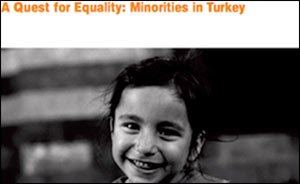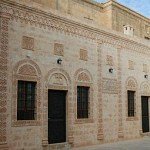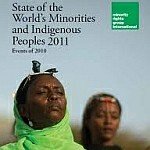In a report entitled "A Quest for Equality: Minorities in Turkey", the Minority Rights Group International says that there is still a ban on minority languages in political life and public services and that school books reinforce stereotypes about minorities.
In the press release announcing the publication of the report, the group further says:
Millions of ethnic, linguistic and religious minorities remain unrecognized by the Turkish state, face discrimination and are now increasingly under threat as a result of a growing wave of violent nationalism, Minority Rights Group says in a new report.
International standards not met
The report says that whilst the accession process to become a EU member state has forced Turkey to make significant strides in minority rights, much more remains to be done. The report titled "A quest for equality - minorities in Turkey" is the most up-to-date analysis available on the situation of all minorities in Turkey.
"Turkey is a country where a centuries-old mix of languages, religions, cultures and traditions is practiced within its borders, but minority protection still falls far short of international standards," says Ishbel Matheson, MRG's Head of Policy and Communications.
"Turkey's multi-cultural heritage is one of its biggest assets. But this positive aspect is not embraced at the highest level. Instead, mention of minorities and minority rights triggers nationalist reactions by certain sectors of society," she adds.
Lausanne Treaty limited to some religiously defined minorities
The only protection for minorities in Turkey has been set out in the 1923 Treaty of Lausanne but in practice its scope is limited only to Armenians, Jews and Rum (Greek orthodox) Christians.
But Turkey is home to a vast number of minorities including ethnic Kurds, Caucasians, Laz and Roma. The country's other religious minorities include Alevis, Assyrians, Caferis and Reformist Christians.
These groups are legally not recognized as minorities and simply referring to their minority status, let alone working for their rights, could lead to a jail sentence.
Linguistic and religious rights limited
According to the report, minorities excluded from the Treaty of Lausanne are very limited in their rights to use their languages in schools and in the media. Their religious rights are also curtailed.
The report also says a 10 percent electoral threshold prevents minority pro-Kurdish parties from getting elected to parliament. These parties have repeatedly failed to surpass the national threshold despite having received the highest percentage of votes in some of the Kurdish populous southeastern provinces.
Minorities have also increasingly becoming victims of a rising trend of nationalism in the country. In January 2007, journalist and Armenian human rights activist Hrant Dink was shot dead in Istanbul. The suspect told police that Dink was Armenian and had "insulted Turkishness".
The report says that the EU accession process and the proposed new constitution in 2008 give plenty of opportunity for Turkey to make legal changes to protect minorities.
"We recommend speedy legal reforms - this is crucial, but to bring real change to Turkey's minorities there has to be radical transformation of the prevalent mentality towards minorities of both the state and society," Matheson says.
Some events concerning minorities in Turkey:
1934: Mass attacks on Jews in Thrace, northern Turkey
1949: Law changing non-Turkish village names into Turkish names passed
1955: Mass attacks on non-Muslims in Istanbul
1982: New constitution which limited basic freedoms and rights was passed. Obligatory religious education (Sunni Islam).
1991: Kurdish MP Leyla Zana spoke in Kurdish in parliament; she and three other MPs were imprisoned for 15 years.
1992: 20,000 Turkish soldiers entered the security zone in Northern Iraq in operations against the PKK.
1994: The Constitutional Court closed the pro-Kurdish Democracy Party (DEP).
2003: Laws passed which relaxed restrictions on freedom of expression and the use of Kurdish. However, mostly children are still not allowed to be given Kurdish names. The Constitutional Court closed the pro-Kurdish People's Democracy Party (HADEP).
2004 The first private Kurdish language course was opened, and a state channel began its weekly half-hour broadcast in Kurdish.
2005: It was decided to nationalise the Roma areas in Istanbul. The Roma were not fairly treated.
27 April 2007: The Chief of General Staff said in a press statement, "Whoever cannot say 'How happy I am to be a Turk' is and will remain an enemy of the Turkish Republic."
2007: Because mayor Abdullah Demirbas of the Sur municipality in Diyarbakir offered multilingual municipal services, he was taken from office by the State Council and the municipal council was dissolved. (NZ/AG)











